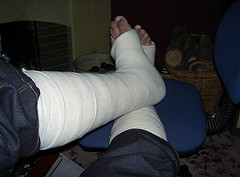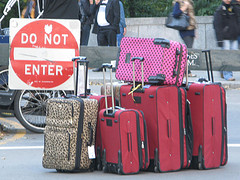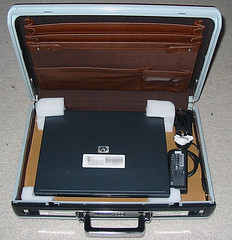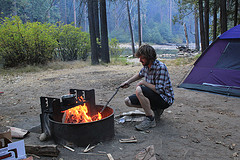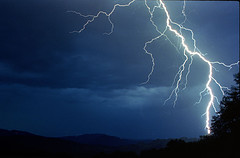 While hurricanes, tornadoes, and flooding have lately dominated the natural disaster scene, it’s important to remember that summer is peak lightning season. According to the National Weather Service, there were 29 deaths due to lightning strikes in 2010 but an average of 55 people are killed each year by lightning, prompting the slogan:
While hurricanes, tornadoes, and flooding have lately dominated the natural disaster scene, it’s important to remember that summer is peak lightning season. According to the National Weather Service, there were 29 deaths due to lightning strikes in 2010 but an average of 55 people are killed each year by lightning, prompting the slogan:
“When thunder roars, go indoors.”
Lightning is a long-studied and barely understood natural phenomenon. It can travel horizontally many miles away from a thunderstorm and even strike the ground out of a clear blue sky.
People who are struck by lightning suffer a number of injuries from severe burns to violent muscle contractions to difficulty breathing. Many injuries turn into long-term problems such as memory loss, sleep disorders, chronic dizziness and fatigue, and more.
When attending outdoor activities, from the golf course to family reunions, be sure some level of shelter is nearby to duck under (even a hard-topped car will do).  If you’re traveling in an unfamiliar area, check the weather conditions before you head out.
See these NOAA resources for more information about lightning safety:
- Lightning: What you need to know
- Lightning Safety for You and Your Family
- Lightning Myths
- Lightning Safety and Science
Here is a complete list of lightning safety resources.



